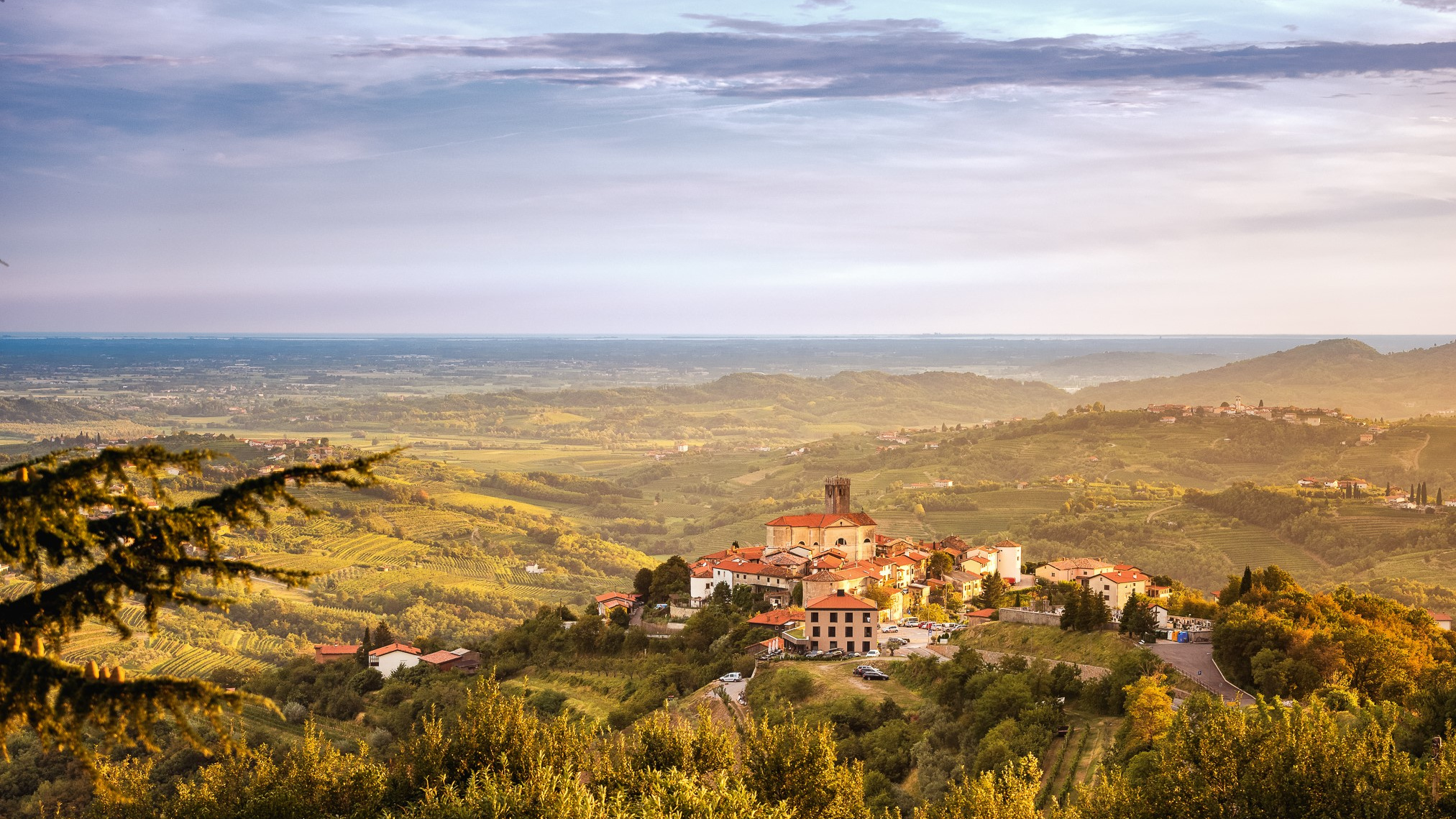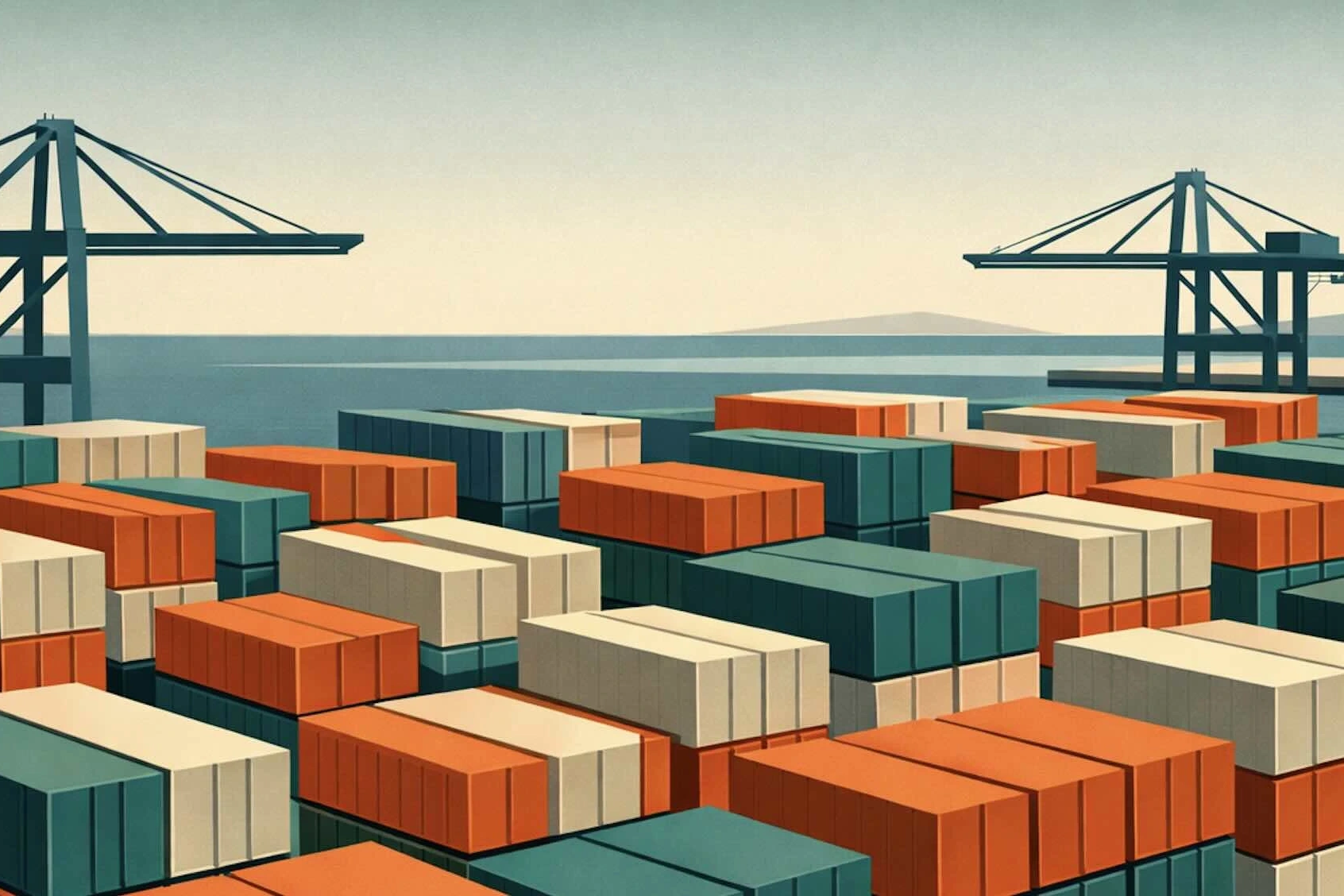Enjoy your life with great wine
Drinking good Wine with good Food in good Company is one of life’s most civilized pleasures
Tinkara Vizovišek
JOURNALIST AT THE ADRIATIC
Klet Brda is the leading producer and exporter of Slovenian wine. When drinking their wines, you will be joining wine lovers from 26 different countries from all over the world and be able to appreciate the quality and variety of the very best Slovenian wines.
The history of Klet Brda begins in 1957 when it was established as a cooperative. Today, the cooperative remains fully owned by local winegrowing families and shapes the life and culture of the Brda region. Nowadays, Brda produces some of the most renowned wines in the world. In Brda, viticulture has been a way of life for many decades and the secrets of their specific and methodical cultivation have been passed down through the generations – spontaneously, naturally, patiently, and lovingly. The wine-growing families believe that wine quality starts in the meticulous cultivation of the vineyards – the pride and joy of Brda. The vines are planted on the steep slopes of the local hills, they require hard work and persistence, and pose some real challenges to the growers. With painstaking manual labour, the wine-growing families produce accessible wines on very hard-to-reach areas of land.
The Adriatic team talked with Silvan Peršolja, the Director of Klet Brda, and Andrej Valentinčič, the Commercial Director of Klet Brda, to get a better insight into the business side of the cooperative.
What makes Slovenian wines different? How important is traditional methodology alongside the innovations that Klet Brda is planning to introduce?
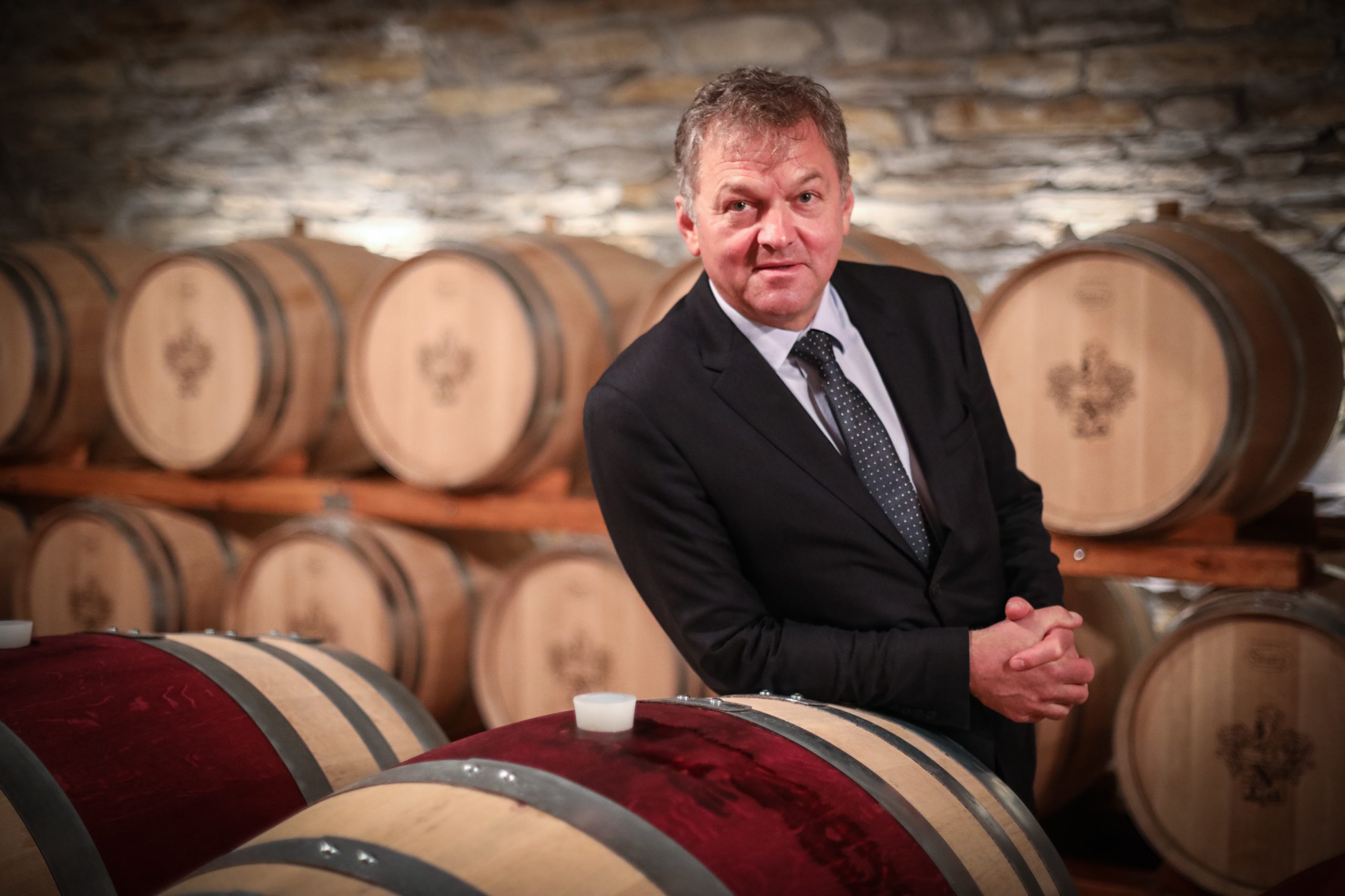
Why is Slovenian Wine among the best in the world? Which wine from your cellar are you most proud of?
SILVAN PERŠOLJA: According to the belief of some wine experts, Slovenian vineyards are among the top 5% of the best grape-growing regions of the world. This is supported by the fact that many countries are either in a transition from a Mediterranean to a Continental climate or on a transition from a Continental to an Alpine climate. This also applies to Brda, which lies at the crossroads of the Mediterranean and the Alpine region. Brda is located where cold and warm air meet, and in conjunction with the unique rich local soil, promotes the production of internationally recognised and award-winning white and red wines.
ANDREJ VALENTINČIČ: Among the wines in our range, I am most proud of Rebula Bagueri Superior. Rebula is the variety that best represents Brda. Brda is the home of Rebula. In 2018, the 2013 Vintage Rebula Bagueri Superior received 97 points out of 100 and a platinum medal at the prestigious British Decanter World Wine Awards. It is also a regular award winner every year at both domestic and foreign competitions. Last year, on its 30th anniversary, the Bagueri Superior brand, recorded a video in collaboration with the famous chef, Tomaž Kavčič, about a dish that goes perfectly with our Rebula Bagueri Superior.
How does the wine-drinking culture in Slovenia differ from the international scene? Why do you think these differences occur?
SILVAN PERŠOLJA: I personally think that wine drinking culture in Slovenia is even more popular than in Austria and Italy. I am pleased by the fact that in recent years the culture of wine drinking in Slovenia has continued to grow, influenced by the increasing awareness of healthy eating as well as the growing interest in haute cuisine and as a result, the excellent wines that accompany it.
ANDREJ VALENTINČIČ: The answer to this question depends on whom we compare ourselves to. If we compare ourselves to Europeans, our wine culture is comparable to the European average. However, this is completely different in countries where there is little or no history of wine-drinking tradition, such as in China and the USA. The culture of wine drinking is higher in countries with a long-established heritage of wine production than in countries where wine is just part of people’s dining habits. The quality is usually directly proportional to the consumption of wine per capita, which is much higher in traditional wine-producing countries such as Italy, France, Spain, and of course, Slovenia.
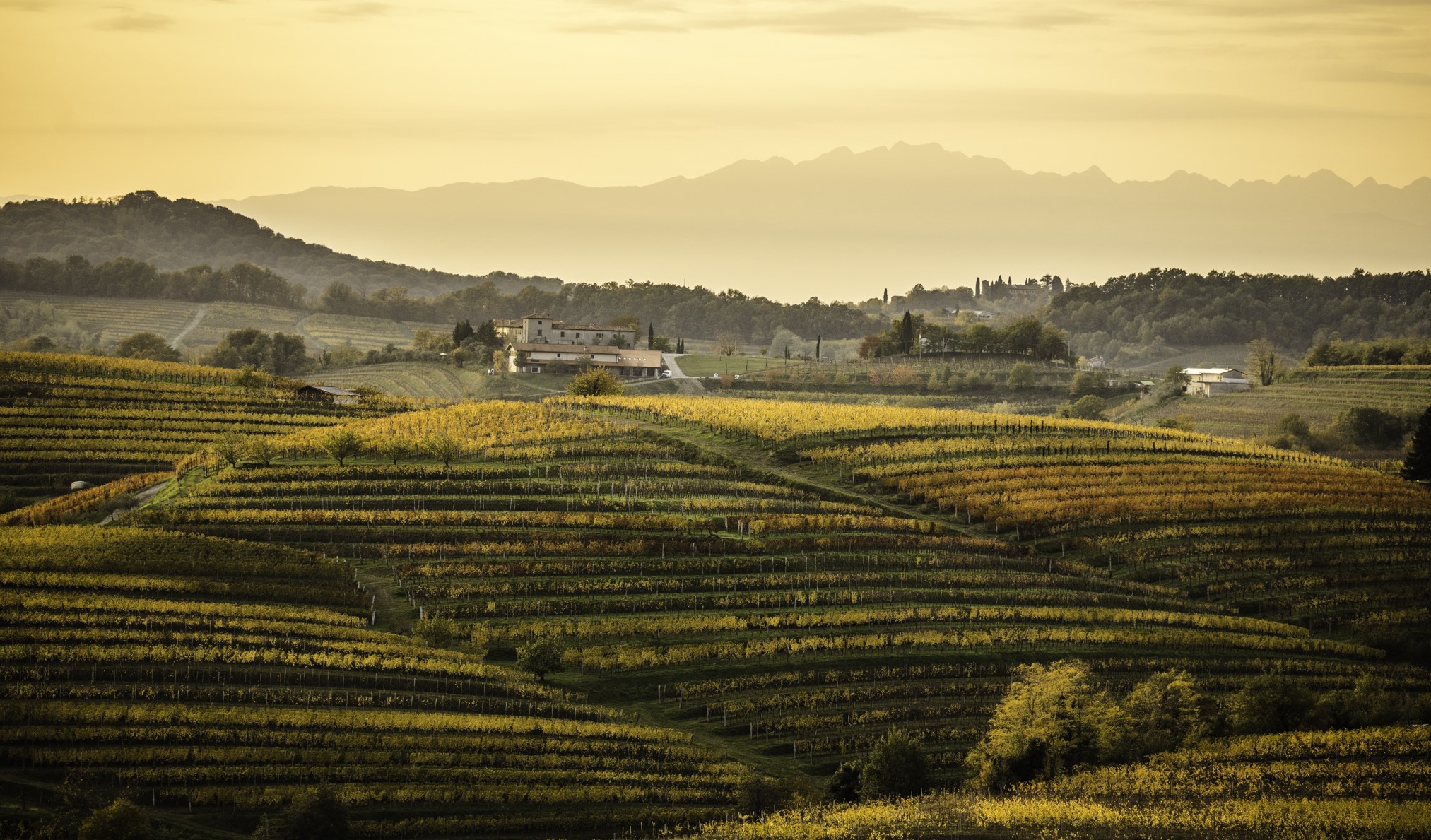
Does wine play a specific role in the business world? Why?
SILVAN PERŠOLJA: Wine exemplifies the tradition of the territory and the culture of the people. Wine, as one of the oldest known drinks, has played a major part in a wide variety of business meetings, events, and gatherings for centuries. It is an excellent connecting link and is well-recognised in the business world. Wine is often used for business gifts, and is perceived as a gift of high status.
ANDREJ VALENTINČIČ: In countries that traditionally produce wine, wine is a key part of business culture, an almost indispensable part of business life. In Russia, for example, this role is taken by vodka. However, there is already a growing interest in wine in Russia and its surroundings.
Are you planning to introduce innovations in 2023 and in the future - both at the production level, as well as in sales?
SILVAN PERŠOLJA: In 2023, we will pay even more attention to the circular economy and focus on sustainable production, as it is considered the foremost way ahead and the leading goal of Klet Brda. We will continue to build on this strategy and gradually start to introduce organic production.
ANDREJ VALENTINČIČ: Innovation is a constant in the field of wine and viticulture. Last year, as part of the sustainable production in Klet Brda, we, together with our partners Telekom Slovenije and the company EFOS, implemented a Slovenian pilot project of smart viticulture with remote pest control. This year we will build on this cooperation, as we believe that digitalization in viticulture represents a big step towards even more sustainable production.
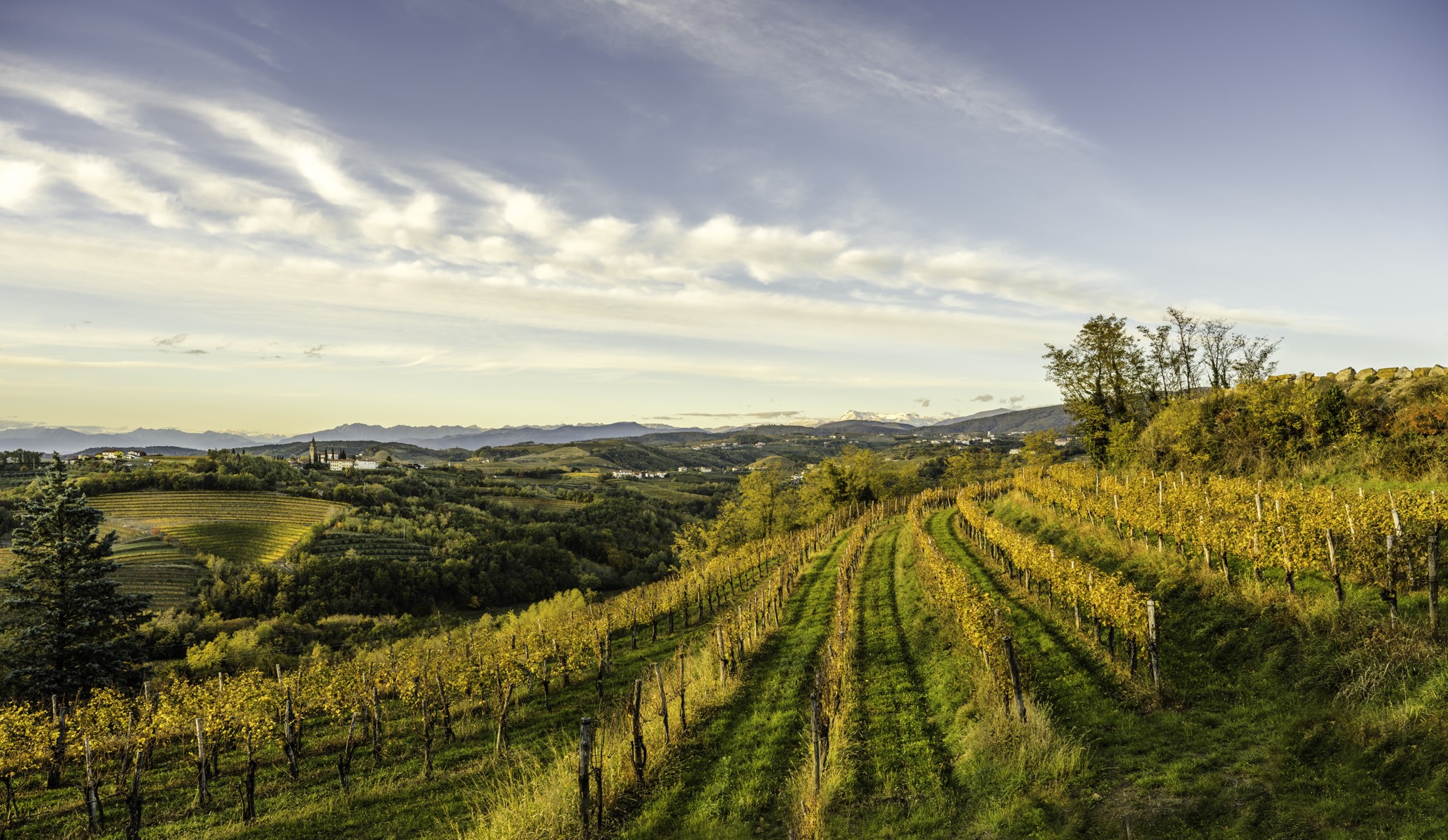
THE ADRIATIC
This article was originally published in The Adriatic Journal: Strategic Foresight 2023.
If you want a copy, please contact us at info@adriaticjournal.com.

